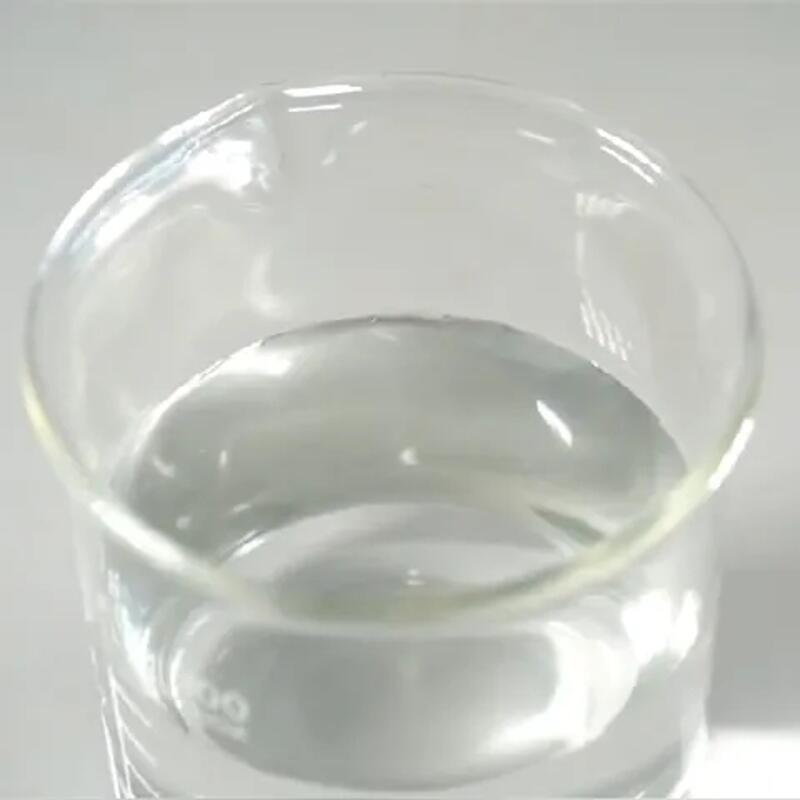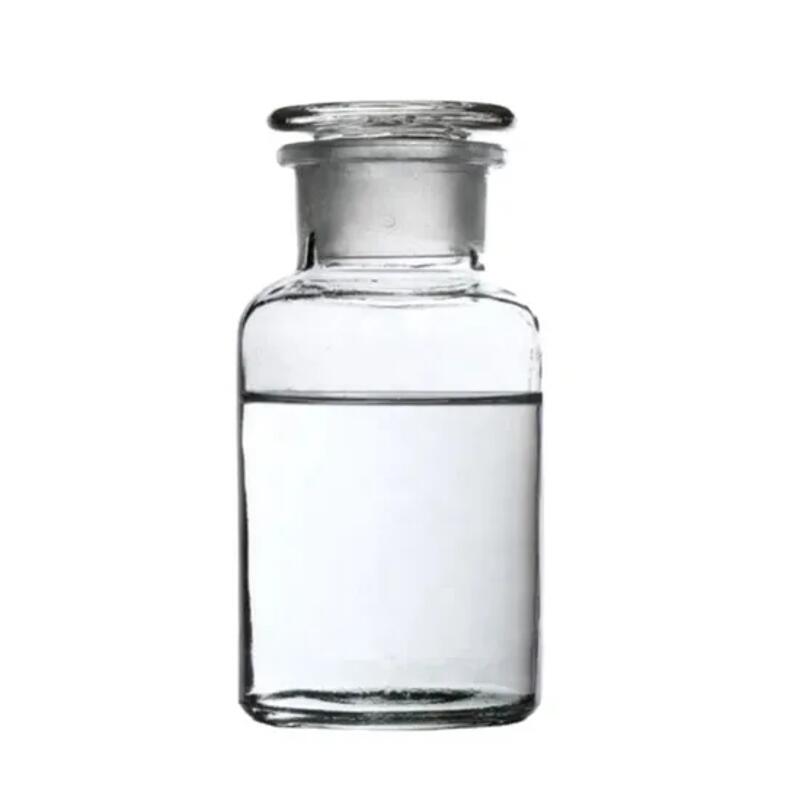-
Categories
-
Pharmaceutical Intermediates
-
Active Pharmaceutical Ingredients
-
Food Additives
- Industrial Coatings
- Agrochemicals
- Dyes and Pigments
- Surfactant
- Flavors and Fragrances
- Chemical Reagents
- Catalyst and Auxiliary
- Natural Products
- Inorganic Chemistry
-
Organic Chemistry
-
Biochemical Engineering
- Analytical Chemistry
-
Cosmetic Ingredient
- Water Treatment Chemical
-
Pharmaceutical Intermediates
Promotion
ECHEMI Mall
Wholesale
Weekly Price
Exhibition
News
-
Trade Service
How long is the longest operation you have? 5 hours and 10 hours.
.
.
the operation time is only longer, not the longest! It is often encountered during long-time operations at work.
Some departments are specialized in ultra-long surgery, such as neurosurgery, which takes 8-10 hours at every turn.
There is also liver transplantation, which requires a long operation time and a high risk.
It is necessary to maintain concentration for a long time.
Test the level of anesthesiologists.
Generally speaking, the operation time is more than 3 hours.
In addition to some common complications, some complications that may lead to more serious consequences should attract our attention.
These are all related to long-term operations and anesthesia, and we must maintain a high degree of vigilance.
Prevent it in advance.
1.
The long time of hypothermia surgery, the dilation of blood vessels caused by anesthesia, and the low temperature in the operating room all lead to a rapid drop in body temperature, especially for patients with low fat content.
Hypothermia causes metabolic acidosis and hypocoagulation.
It is recommended to monitor the body temperature of each patient, at least if the operation is estimated to be longer than 3 hours, the body temperature is monitored.
A simple infrared thermometer is also a good choice for intermittent monitoring of the temperature behind the ear.
At the same time, measures such as liquid heating and keeping warm should be taken into consideration from the beginning of the operation.
2.
Pressure ulcers don’t think that this is just what the surgical nurse should pay attention to.
Many of our operations may cause pressure ulcers.
Electrocardiogram lines, stomach tubes, dental pads, etc.
, as long as they directly touch the patient’s skin, they can cause obvious pressure ulcers for a long time.
In particular, it should be pointed out that more obvious pressure ulcers may occur after pulse oxygen compresses the fingers for more than 3 hours, and these should be completely avoided.
3.
The cuff can be intubated for a long time, and the expanded cuff will cause tracheal mucosal ischemia or even damage and necrosis.
Relaxing the cuff once every 2-3 hours may be beneficial.
4.
Such complications of deep vein thrombosis of lower extremities have serious consequences and high disability and fatality rate.
Especially for long-term laparoscopic surgery, the pressure in the abdominal cavity severely hinders the return of the veins of the lower extremities, and thrombus is more likely to form; the application of elastic stockings, anti-thrombotic compression apparatus, etc.
has a certain preventive effect.5.
Blood volume and urine volume are prone to acidosis, electrolyte imbalance, anemia, and coagulation dysfunction during long-term surgery.
Blood gas should be rechecked every 1-2 hours, and the inflow and outflow should be assessed at the same time.
At the same time, the amount and color of urine can also reflect blood volume and metabolism to a certain extent, and it is normally guaranteed to be above 0.
5ml/kg.
6.
Accumulation of anesthetic drugs.
Anesthetics with high fat-soluble properties are more likely to be distributed into fat and other tissues, leading to prolonged recovery time.
For example, the sensitive half-life of propofol is within 15 minutes within 3 hours of continuous infusion, and the half-life will be extended by about 5 minutes for every additional hour of infusion.
7.
Pulmonary expansion Some operations or patient positions, coupled with long-term operations, are very likely to cause atelectasis.
During the operation and at the end of the operation, expand the lungs to reduce atelectasis.
8.
Eye protection Eyes are prone to keratitis after prolonged exposure; emboli from the surgical site and ocular compression may cause the main trunk or branch of the central retinal artery to be occluded; in addition, prolonged prone position and massive blood loss can cause ischemic optic neuropathy Higher.
The anesthesiologist should inform the prone position, prolonged operation and possible heavy bleeding, there is a risk of postoperative vision loss.
9.
Subcutaneous emphysema and carbon dioxide pneumothorax are now widely carried out by laparoscopic surgery, and the operation is getting longer and longer.
The pressure of the pneumoperitoneum on the various organs can easily cause acidosis.
At the same time, the absorption of carbon dioxide is increasing, and the increase in carbon dioxide begins, followed by subcutaneous emphysema, and even carbon dioxide pneumothorax.
10.
Re-absorption of water and carbon dioxide in the pipeline.
The condensate stored in the exhaled water after a long-term operation can significantly increase the airway pressure.
At the same time, attention should be paid to the failure of soda lime to avoid repeated absorption of carbon dioxide.
The above complications occur more frequently in patients undergoing long-term surgery.
If there are any shortcomings, please leave a message for advice.
I hope you will gain!
.
.
the operation time is only longer, not the longest! It is often encountered during long-time operations at work.
Some departments are specialized in ultra-long surgery, such as neurosurgery, which takes 8-10 hours at every turn.
There is also liver transplantation, which requires a long operation time and a high risk.
It is necessary to maintain concentration for a long time.
Test the level of anesthesiologists.
Generally speaking, the operation time is more than 3 hours.
In addition to some common complications, some complications that may lead to more serious consequences should attract our attention.
These are all related to long-term operations and anesthesia, and we must maintain a high degree of vigilance.
Prevent it in advance.
1.
The long time of hypothermia surgery, the dilation of blood vessels caused by anesthesia, and the low temperature in the operating room all lead to a rapid drop in body temperature, especially for patients with low fat content.
Hypothermia causes metabolic acidosis and hypocoagulation.
It is recommended to monitor the body temperature of each patient, at least if the operation is estimated to be longer than 3 hours, the body temperature is monitored.
A simple infrared thermometer is also a good choice for intermittent monitoring of the temperature behind the ear.
At the same time, measures such as liquid heating and keeping warm should be taken into consideration from the beginning of the operation.
2.
Pressure ulcers don’t think that this is just what the surgical nurse should pay attention to.
Many of our operations may cause pressure ulcers.
Electrocardiogram lines, stomach tubes, dental pads, etc.
, as long as they directly touch the patient’s skin, they can cause obvious pressure ulcers for a long time.
In particular, it should be pointed out that more obvious pressure ulcers may occur after pulse oxygen compresses the fingers for more than 3 hours, and these should be completely avoided.
3.
The cuff can be intubated for a long time, and the expanded cuff will cause tracheal mucosal ischemia or even damage and necrosis.
Relaxing the cuff once every 2-3 hours may be beneficial.
4.
Such complications of deep vein thrombosis of lower extremities have serious consequences and high disability and fatality rate.
Especially for long-term laparoscopic surgery, the pressure in the abdominal cavity severely hinders the return of the veins of the lower extremities, and thrombus is more likely to form; the application of elastic stockings, anti-thrombotic compression apparatus, etc.
has a certain preventive effect.5.
Blood volume and urine volume are prone to acidosis, electrolyte imbalance, anemia, and coagulation dysfunction during long-term surgery.
Blood gas should be rechecked every 1-2 hours, and the inflow and outflow should be assessed at the same time.
At the same time, the amount and color of urine can also reflect blood volume and metabolism to a certain extent, and it is normally guaranteed to be above 0.
5ml/kg.
6.
Accumulation of anesthetic drugs.
Anesthetics with high fat-soluble properties are more likely to be distributed into fat and other tissues, leading to prolonged recovery time.
For example, the sensitive half-life of propofol is within 15 minutes within 3 hours of continuous infusion, and the half-life will be extended by about 5 minutes for every additional hour of infusion.
7.
Pulmonary expansion Some operations or patient positions, coupled with long-term operations, are very likely to cause atelectasis.
During the operation and at the end of the operation, expand the lungs to reduce atelectasis.
8.
Eye protection Eyes are prone to keratitis after prolonged exposure; emboli from the surgical site and ocular compression may cause the main trunk or branch of the central retinal artery to be occluded; in addition, prolonged prone position and massive blood loss can cause ischemic optic neuropathy Higher.
The anesthesiologist should inform the prone position, prolonged operation and possible heavy bleeding, there is a risk of postoperative vision loss.
9.
Subcutaneous emphysema and carbon dioxide pneumothorax are now widely carried out by laparoscopic surgery, and the operation is getting longer and longer.
The pressure of the pneumoperitoneum on the various organs can easily cause acidosis.
At the same time, the absorption of carbon dioxide is increasing, and the increase in carbon dioxide begins, followed by subcutaneous emphysema, and even carbon dioxide pneumothorax.
10.
Re-absorption of water and carbon dioxide in the pipeline.
The condensate stored in the exhaled water after a long-term operation can significantly increase the airway pressure.
At the same time, attention should be paid to the failure of soda lime to avoid repeated absorption of carbon dioxide.
The above complications occur more frequently in patients undergoing long-term surgery.
If there are any shortcomings, please leave a message for advice.
I hope you will gain!







